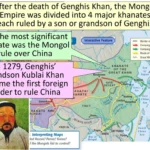Kip McKean, the charismatic leader who built the International Churches of Christ (ICOC) into a global movement, has been forced into retirement amidst a whirlwind of accusations. Allegations of “spiritual faltering,” concealed sexual abuse, and a culture of control have cast a long shadow over his legacy, leaving the future of the ICC hanging precariously in the balance. This investigative report delves into the rise and fall of Kip McKean, examining the controversies that ultimately led to his departure and the uncertain future of the church he founded.
From Lexington to Global Movement: McKean’s Rise
McKean’s journey began inconspicuously at the Lexington Church of Christ in Massachusetts. There, in the late 1970s, he honed a discipleship program that became the engine of the church’s explosive growth. This program, which paired new members with seasoned “discipling partners,” was credited with fostering deep spiritual connections and driving membership. However, it also drew criticism for its intensity and the level of control exerted over members’ lives. Some saw it as dedicated mentorship, while others viewed it as manipulative indoctrination—a dichotomy that would follow McKean throughout his career. This period foreshadowed the controversies that would later engulf him. The seeds of what some would call a cult of personality were sown, with McKean positioned as the central figure, the ultimate authority on spiritual matters.
Discover Khalil Gibran’s poignant Lebanon quotes and immerse yourself in the thought-provoking words of a literary giant.
The Discipleship Controversy: A Culture of Control?
The discipling method, often described as demanding and all-encompassing, required significant commitment from followers. Members were expected to prioritize the church above all else, often leading to accusations of isolation from family and friends outside the group. Critics argued this fostered an environment of dependence on the church, and more specifically, on McKean himself. This intense loyalty, they suggest, made it difficult for members to question leadership or voice concerns. Indeed, the very structure of the ICOC, with McKean at its apex and a hierarchical system of leadership beneath him, may have inadvertently contributed to the alleged suppression of dissent. Former members have spoken of a culture of fear, where challenging leadership could result in ostracization and “disfellowshipping”—a practice akin to excommunication.
The Portland Movement and the Birth of the ICC
In 2006, McKean published “Partners in the Gospel,” marking the beginning of what became known as the Portland/Sold-Out Discipling Movement. This ultimately led to the formation of the International Christian Church (ICC), carrying forward many of the practices and principles of the ICOC, but under a new banner. However, the ICC also inherited the controversies that had dogged McKean and the ICOC. Allegations of controlling behavior, financial irregularities, and a suppression of dissent continued to surface.
The Unraveling: Allegations and Forced Retirement
The long-simmering tensions finally boiled over in April 2024. McKean’s forced retirement sent shockwaves through the ICC. While some reports suggest he chose to step down to avoid further damage to the organization, others, like Coltin Rohn, claim he was outright fired due to mounting allegations, including the alleged cover-up of sexual abuse. The details surrounding the retirement remain murky, but its impact is undeniable. One report suggests that World Sector Leader Raul Moreno announced McKean’s retirement.
These allegations are serious and deserve thorough investigation. It is important to remember that these are allegations, and McKean has not been formally charged with any crime. However, the consistency and gravity of the claims, some of which have been detailed in lawsuits and media reports, paint a troubling picture.
The Future of the ICC: An Uncertain Path
McKean’s departure leaves the ICC at a crossroads. What will become of the organization without its founding figurehead? Will it reform its practices, addressing the concerns raised by former members and critics? Or will it continue down a similar path, potentially under new leadership? These are open questions that only time will answer. The organization’s response to these allegations, and its willingness to embrace transparency and accountability, will likely determine its future trajectory.
Inside the ICOC: Beliefs, Practices, and Controversies
The ICOC’s theology centers on a literal interpretation of the Bible, which they view as the ultimate authority on matters of faith and practice. Core beliefs include salvation through baptism by full immersion, a strong emphasis on discipleship, active evangelism, and weekly communion. While these practices provide a strong sense of community and purpose for many members, some aspects, particularly the discipling process, have drawn criticism for being potentially overly controlling and isolating.
Key Beliefs and Practices
- Biblical Literalism: The Bible is considered the inerrant word of God.
- Baptism: Full immersion baptism is seen as essential for salvation.
- Discipleship: A structured mentoring program pairs newer members with more experienced guides.
- Evangelism: Active sharing of faith with others is a core practice.
- Communion: Weekly observance of communion is practiced.
Controversies and Concerns
- Cult-like Allegations: Critics have raised concerns about the ICOC’s high-demand culture and intense focus on obedience.
- Disfellowshipping: The practice of excommunication for those who deviate from church teachings has been criticized.
- Abuse Allegations: Allegations of spiritual and sexual abuse, and attempts to cover them up, have emerged, prompting investigations and lawsuits.
The Boston Movement and McKean’s Legacy
The so-called “Boston Movement,” of which the ICOC was a central part, had a significant impact on the religious landscape. While credited with bringing many to faith, it also faced accusations of authoritarianism and employing intense discipling practices. McKean’s role as the driving force behind this movement is undeniable, and his legacy remains complex and controversial. While some view him as a visionary leader, others see him as a manipulative figure who fostered a culture of control. Further research and investigation are likely needed to fully understand the complexities of this movement and McKean’s role within it.
The story of Kip McKean and the ICC is a cautionary tale about the potential pitfalls of unchecked power within religious organizations. It underscores the vital importance of transparency, accountability, and the protection of individual autonomy. As the ICC navigates this challenging period, the world watches to see what the future holds for this once-thriving religious movement.
- Unlock Black Pepper’s Secrets: A Complete Guide - April 26, 2025
- Discover Long Black Pepper: Flavor & Health Benefits - April 25, 2025
- Shocking Twists: The Grownup Review: Unreliable Narration - April 25, 2025
















